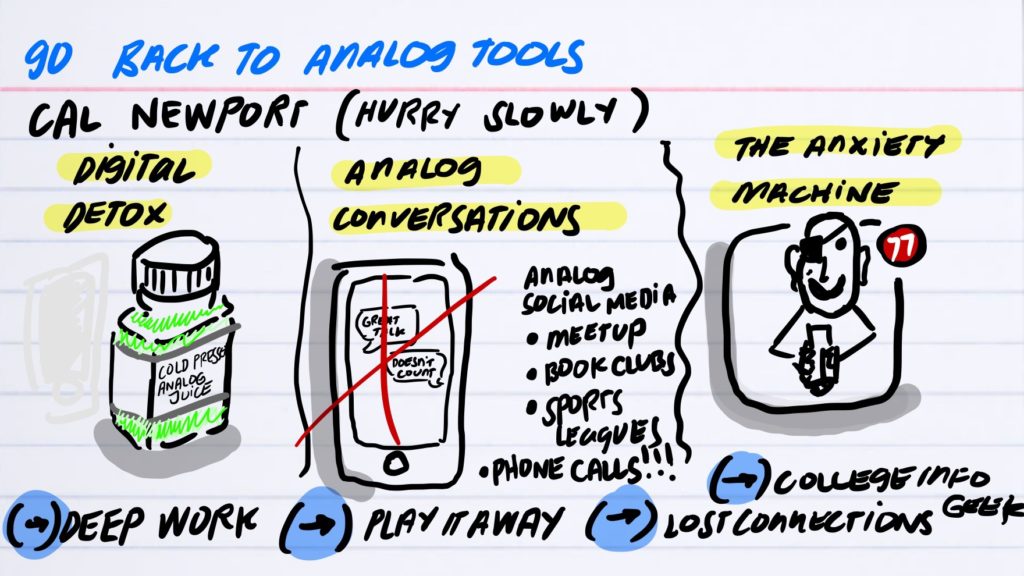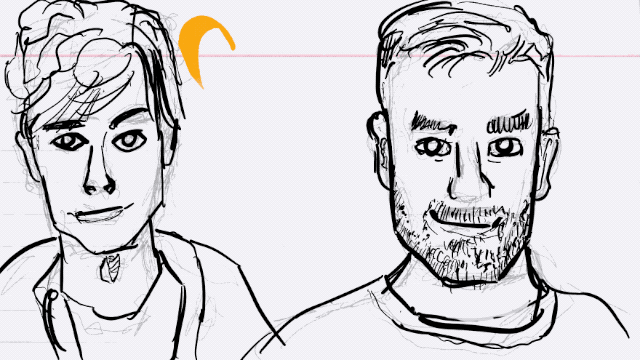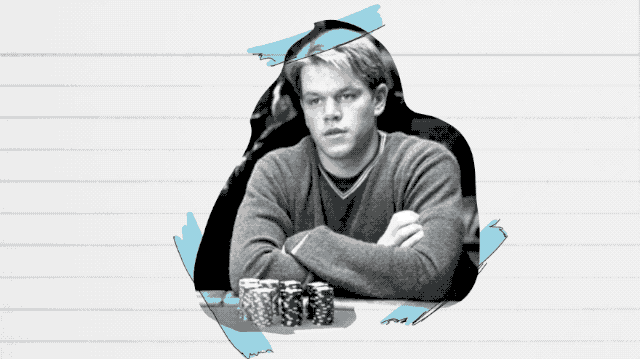Topic: Cal Newport (Hurry Slowly)
Link: https://hurryslowly.co/cal-newport/
Episode Title: Cal Newport: Using Technology with Intention
Jocelyn K. Glei (@jkglei) and Cal Newport discussed his latest book, Digital Minimalism.
- Digital detox — It’s worth taking a look at your digital life and then taking a break from parts (or most) of it. First suggestion: uninstall anything with pull-to-refresh or any sort of feed. (Yes, this might mean limiting your email use.) Whether the complete detox is possible for you and your work situation, there’s some version of your life that you can come up with where you’re not looking at a screen quite as much.
- Analog communication — Have a conversation with a friend. You know, with your voice. This is where I dislike hard stances on video games being addictive and bad for you. Yes, I think they can be those things. But I also think games and voice chat can be a great way to keep in touch with friends in other states. Frequency matters in friendships. “But when we get together, even after years, it’s just like before!” Sure, but consider if you spoke to each other weekly during those years. (A reminder that I need to call my mom. It’d be a lot easier if she played CS:GO.)
- The anxiety machine — Yes, phones are super useful. Yes, they can also be positivity machines. But a lot of times they can lead to anxiety and worry (re-reading the same bad news in some different form) or they just let you waste huge chunks of time that could have gone toward something that lessens your anxiety and worry (like meeting up with friends or doing the work you’ve been putting off).
I like how Justin Kan put it:
You have voluntarily decided to carry around a toxic, time-wasting Skinner-box in your pocket at all times, from the second you wake up in the morning to right before you fall asleep at night. This is incredibly stupid, and yet every smart person does it.
Need some entertainment? Just be more like Cal Newport and listen to baseball on the radio. Which sounds like a past time older than scribbling on a papyrus scroll. (It also sounds very soothing.)








